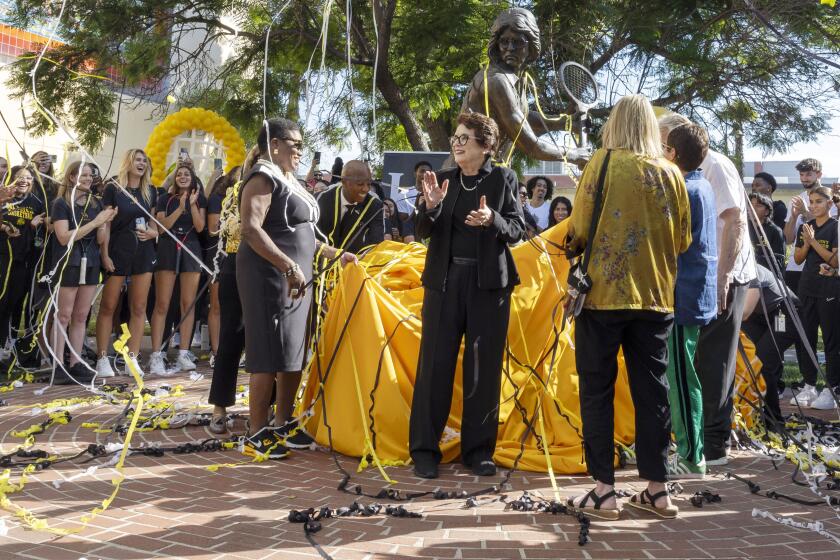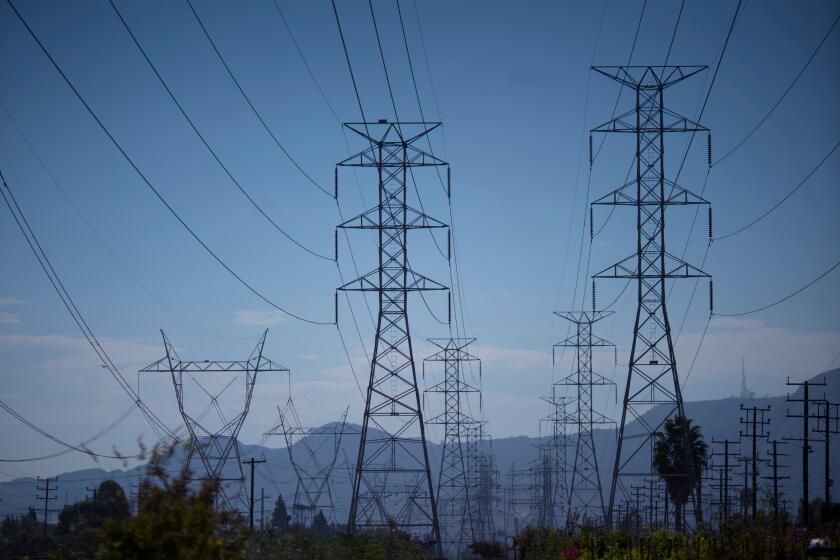
- Share via
As President Trump’s deputy assistant secretary for early childhood development and director of the Office of Head Start during his first term, I have seen firsthand the positive impact of his leadership. His dedication to streamlining government resulted in changes to the Head Start system that supported its programs’ commitment to continued quality improvement. As well, his response during COVID-19 kept Head Start programs operating and serving children and families and paying staff when many others were not able to do so. I was proud to work under the president’s leadership. That’s why I feel compelled to share my perspective on the recent interim rule that would prevent Head Start programs from serving children whose immigration status is in question.
This is a complex issue, but when it comes to our youngest children — babies and preschoolers — there are some simple considerations to keep in mind.
First and foremost: Let’s not use children to solve an adult problem.
Even if we wanted to apply this policy, determining eligibility would be a problem. How would providers determine the status of a 6-week-old baby or a 3-year-old child? Are we asking teachers to check the legal status of parents? What will that process look like, and who will be responsible for it? And if a child is found to be here without legal status, what happens next? Are we prepared to turn them away from preschool? It seems the real target here may be the parents, but the impact will fall on the children.
No child — and certainly none under 5, the age group Head Start serves — has any control over how they arrived in this country. These children are among the most in need of our care. As long as they are here, the United States — the greatest nation on Earth — should find a compassionate and practical way to respond.
I might also suggest that ignoring an entire population of young children is a recipe for disaster for the future of our nation. Research is clear: The human brain is 80% fully developed by age 3 and 90% by age 5. Head Start has 60 years of proven success, helping more than 40 million children grow into productive, healthy adults. Teachers, doctors, clergy, military personnel, philanthropic leaders and members of Congress are proof of those 60 years of results.
Additionally, we have a 60-year track record of bipartisan support and success in producing healthier children, safer neighborhoods, more parents working and contributing, and fewer families needing public assistance. If we ignore a vulnerable portion of this generation of young children, we risk greater dependency on government support in the future and miss an opportunity to strengthen our nation.
A child’s future depends on a strong start. As long as these children are here, their future should matter to us. Is the goal to use Head Start children as a way to reach their parents? If so, I urge us to reconsider: Let’s not use children to solve an adult problem.
I believe there may be some unintended consequences of this rule that deserve a closer look, particularly when it comes to our youngest children. There may also be some misconceptions about Head Start’s role. The idea that families are crossing the border primarily to access preschool simply isn’t supported by data. Head Start’s mission is to give children living in this country the best possible start in life, and with more information, we can find a solution that strengthens both our immigration system and our nation’s future.
The president has shown the courage to tackle tough issues. He also has the responsibility to ensure our solutions reflect the best of who we are. Denying basic support to children who are in this country runs counter to the ideals that make America great. I am confident he will take a closer look at this rule and find a way forward that protects children while upholding our nation’s values.
Given all that Head Start does for the country’s youngest learners and their futures, there is no good reason to make it harder for children to access this life-changing opportunity.
Deborah Bergeron, a former deputy assistant secretary for early childhood development and director of the Office of Head Start, is deputy director at the National Head Start Assn.
More to Read
Insights
L.A. Times Insights delivers AI-generated analysis on Voices content to offer all points of view. Insights does not appear on any news articles.
Viewpoint
Perspectives
The following AI-generated content is powered by Perplexity. The Los Angeles Times editorial staff does not create or edit the content.
Ideas expressed in the piece
- The author argues that barring undocumented children from Head Start unfairly targets vulnerable young children who have no control over their immigration status, effectively using them to solve an adult problem.
- Practical implementation challenges are emphasized, such as the difficulty in determining eligibility for infants or toddlers and the lack of clear procedures for providers to verify status, creating confusion for programs.
- Preventing access to early education for this population risks long-term harm to society, given Head Start’s 60-year proven success in fostering healthy development during critical brain growth periods (80% by age 3) and reducing future dependency.
- The policy is criticized as counterproductive and misaligned with American values, as families don’t primarily cross borders for preschool access, and denying basic support to children contradicts the nation’s compassionate ideals.
Different views on the topic
- The Trump administration contends that the policy restores integrity to federal programs by ensuring taxpayer dollars no longer incentivize illegal immigration, reserving resources for American citizens.[1]
- Health and Human Services Secretary Robert F. Kennedy Jr. stated the change enforces the rule of law and protects vital public resources, framing previous access as a diversion of hardworking Americans’ taxes.[1][2]
- Agency officials assert that reclassifying Head Start and similar programs as welfare justifies immigration-status restrictions, aiming to prioritize citizens’ needs amid concerns about resource allocation.[2][3]
A cure for the common opinion
Get thought-provoking perspectives with our weekly newsletter.
You may occasionally receive promotional content from the Los Angeles Times.









